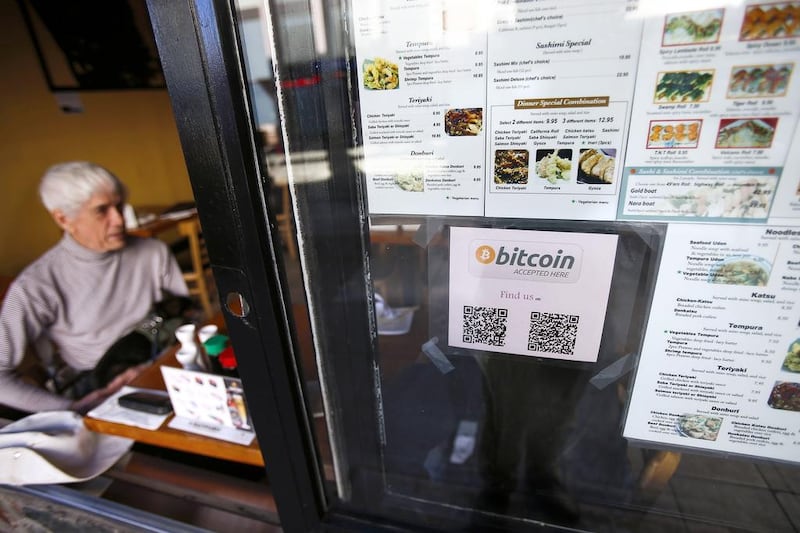Money, like justice, is what we agree it is.
But when we stop agreeing, then an authority must step in to preserve the system.
Behind justice stands law enforcement – or as it is sometimes called, “the blue wall” of the police. Behind money stands the issuer – typically a central bank nowadays, although historically it was not always the case.
Which brings us to Bitcoin.
Bitcoin is a digital currency. The way it works is that you use computer power to solve a cryptographic puzzle, then you get a Bitcoin. You can trade and spend them primarily on an array of internet sites. Bitcoins were originated in 2009 by an unknown software developer (or developers), and no more than 21 million are to be created. Those are the rules.
The emergence of Bitcoin harkens to those times in history when currency was less centralised and its backing less certain.
What we now think of as money began with coins made of precious metals – silver, gold and copper. These coins, having intrinsic value, provided their own backing. But they were worryingly subject to adulteration, to the integrity of a merchant’s scales, and to new discoveries of precious metals (which risked inflating the money supply).
And so you had the problem of who was vouching for the coinage.
In the early 17th century, a solution came from the European trading centres of Venice, Genoa, Amsterdam, Hamburg and Nuremberg. These places dealt in a variety of nations’ coinages, thus magnifying the challenge of assigning value. So they established public banks, which weighed coins with an even hand and valued them at their intrinsic worth. The services of these banks were made obligatory for foreign traders for payment of bills above a set amount.
Thus we had the enforcement aspect of currency, which puts a certain onus on the state via the regulatory bank: “Being established upon the credit, and under the protection of the state, the bank being always obliged to pay, in good and true money, exactly according to the standard of the state”, wrote the Scottish economist Adam Smith in The Wealth of Nations (1776).
Around the same time, across the Atlantic, the American colonists faced the challenge of money from the opposite end: rather than too many forms of it, they possessed too few. But they saw that native Americans used shells called wampum for commemorative purposes and figured those would do just fine.
“The acceptability of wampum depended on its being redeemed by the Indians in pelts,” the Canadian-born economist John Kenneth Galbraith noted in Money (1971). “The Indians were, in effect, the central bankers for the wampum monetary system, and beaver pelts were the reserve currency into which wampum could be converted.”
Then beavers became scarcer and wampum faded from usage – no doubt to the dismay of those Indians holding satchels full of beads, and to the benefit of those colonists who had sold pelts in exchange for something other than clamshells. But that is what happens when a currency has no reliable backing.
In the southern American colonies, tobacco proved somewhat more enduring as an improvised form of money. Virginia even made tobacco legal tender in 1642. As with precious metals, there arose the problems of debasement and variable supply. The solution, borrowing a page from Amsterdam and its peers, was to establish a public warehouse that weighed and graded the tobacco leaf and paid the depositor in certificates that were legal tender. This was a step from commodity money to paper money.
In 1690, the Massachusetts colonists started printing paper money (a good many centuries after China). It is a practice that has bested all competitors and endures to the present.
Now comes Bitcoin. It has been on a remarkable run. In March, interest in the coins as a safe haven exploded when Cyprus threatened to tax bank deposits. And last month came a burst of news: a paper from the United States Federal Reserve Bank of Chicago described Bitcoin as both “inherently fragile” and a “remarkable conceptual and technical achievement”; a US Senate hearing into digital currencies was lucid rather than heated, with much talk of their potential utility; and last Wednesday, on an online exchange site, Bitcoin traded above US$1,000 for the first time.
The Fed paper and the Senate hearing have been widely construed as steps towards acceptance of Bitcoin, but they could equally be read as steps towards its regulation. If an unstable person is pointing a knife at you, it is probably best to talk softly to them until the police arrive.
Yet even if Bitcoin is a bubble, it is a bubble that was blown for a reason.
Bitcoin is a response to the tension between technologies old (paper) and new (computers). This will have to be bridged and one can foresee the day when a digital currency, backed by a state or states, attains the status of legal tender. But the key is the backing: and Bitcoin as it is now constituted has no backing. The five admnistrators at the core of Bitcoin today are under no obligation to prop it up if it collapses, and probably have little or no ability to do so. Money without backing is not durable.
Bitcoin’s defenders argue that a government’s obligation to back its paper currency is not absolute, so really what is the difference?
The difference is simply one of degree. It’s like this: if you show up at a friend’s house and say you would like to crash on their couch for a month, they are under no obligation to say yes. And if you knock on your mother’s door, she too is under no obligation to say yes. But your mother will take you in, whereas your friend will make comforting noises and then sadly say no.
Government is the mother of its currency; Bitcoin administrators are but the friends of theirs.
rmckenzie@thenational.ae





